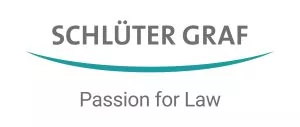On 12 November 2020, Oman's Sultan Haitham bin Tariq Al Said enacted a new Law on Simplification of Certain Judicial Procedures in Specific Matters ("Law") by virtue of Sultani Decree No. 2020/125. It simplifies court procedures in vital areas for foreign investors and the economy as a whole and can be seen as a major streamliner for dispute resolution in Oman's economy. The Law will enter into force 3 months after its publication in the Official Gazette on 22 November 2020.
1. What is new?
By virtue of the new Law, the current procedural legislation will be simplified and expedited for
- Commercial disputes in relation to foreign direct investment (FDI);
- Disputes between owners and tenants of residential, commercial, and industrial premises;
- Labor disputes of individuals;
- Disputes in relation to construction projects; and
- Disputes arising out of attested acknowledgements of debt.
The procedural specification of the Law will override the standard court procedures, which will remain in force in case of no specific regulation in the Law.
The Law contains the creation of special court chambers with only one judge and special appeal chambers for the aforementioned disputes. It improves means for electronic submission of documents in court proceedings and shortens deadlines for certain formal decisions (e.g. deciding the competence of the court to hear the case). Court notifications can be sent by text messages and electronically.
Ordinary judgments will have to be rendered within 30 days (extendable for an additional 30-day period). Disputes arising out of construction contracts, commercial disputes, or an FDI project are subject to a special deadline and must be adjudicated within four months.
Court cases initiated under the current procedural system will be completed without reference to the new Law.
2. Labor Disputes
The Law contains a mandatory settlement procedure with the concerned labor authorities prior to initiating formal court proceedings. Settlements reached successfully in such procedures become an enforceable title. Unsettled issues will be referred to the above-mentioned chambers of the courts of 1st instance.
3. Rent Disputes
Rent agreements in accordance with the legal requirements are to become an enforceable title. This applies to residential, commercial, and industrial leases and follows a similar trend to Saudi Arabia.
4. Fast Track Enforcement of Acknowledgments of Debt and Criminal Proceedings for Bounced Cheques
Debt acknowledgements in specific forms, signed and attested by a notary public become directly enforceable titles.
Bounced cheques and related civil claims will now be decided in a one-track procedure in front of the criminal courts, with separate proceedings in civil courts largely eliminated. Accelerated procedures and limited possibilities for recourse have been introduced to speed up procedures in cases of bounced cheques.
5. Less Challenges of Rendered Decisions
Possibilities for appeals are limited in cases with a value of up to 2000 OMR. Appeals must be submitted within 15 days. By default, appeal judgments are to be rendered within 30 days with a possible extension of up to 60 days. Appeals arising out of construction contracts, commercial disputes, or an FDI project must be adjudicated within six months.
Cassations before the Supreme Court are limited, and the Supreme Court may under certain circumstances decide the case directly without referring it back to a Court of Appeal.
6. Streamlined Enforcement
Enforcement departments will be established with every court corresponding to the special court chambers mentioned above. Enforcement procedures will by default not be suspended while taking legal action against enforcement measures and related challenges before the Supreme Court will generally not be possible.
7. Conclusion
The new Law brings court proceedings in Oman more in line with the requirements of businesses and especially foreign investors. From a practical perspective, court proceedings should – where possible – be delayed in order to benefit from the new regulations.
The content of this article is intended to provide a general guide to the subject matter. Specialist advice should be sought about your specific circumstances.



